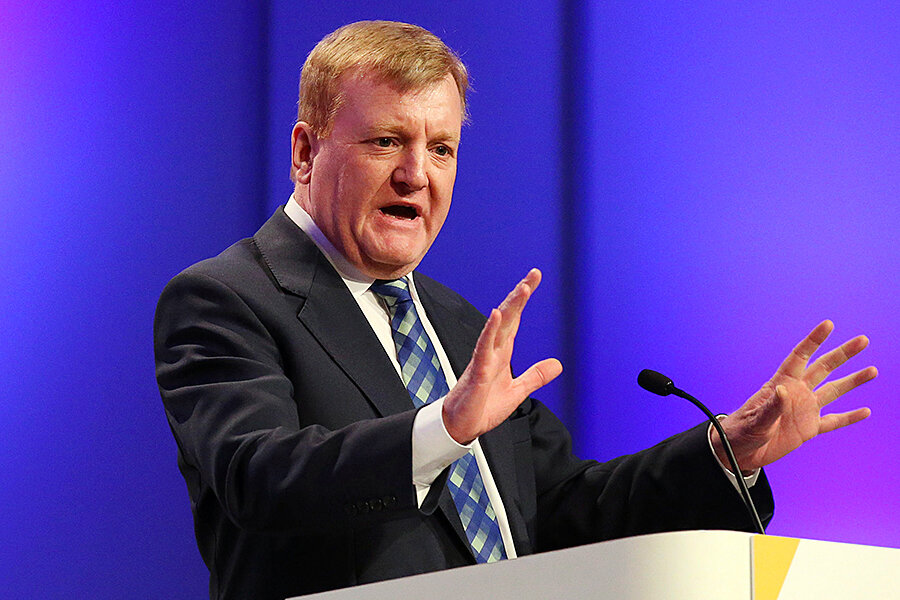Charles Kennedy tributes: UK politicians remember former Liberal Democrat leader
Loading...
| London
Charles Kennedy was a rare thing – a genuinely popular British politician – and brought his Liberal Democrat party record success before his leadership was cut short by alcoholism.
His death at 55 brought tributes Tuesday from across politics and beyond for a man whose wit and warmth made him stand out from the pack.
Former Liberal Democrat leader Nick Clegg said Kennedy's death "robs Britain of one of the most gifted politicians of his generation."
"Charles Kennedy on form, on a good day when he was feeling strong and happy, had more political talent in his little finger than the rest of us put together," Clegg told Sky News.
Kennedy's family said in a statement that he died Monday at his home in the Scottish Highlands. They did not reveal the cause of death and said a post-mortem would be conducted. Police said Kennedy's death did not appear suspicious.
Nicknamed "Chat-show Charlie," because of his many television appearances, Kennedy was known for gregariousness and a light-hearted, common touch. He was elected to Parliament at 23 in 1983, and succeeded Paddy Ashdown as leader of the center-left party in 1999.
Under his leadership, the Liberal Democrats were the only major party to oppose the 2003 U.S.-led invasion of Iraq. Kennedy predicted that the legacy of the messy, divisive war would haunt then-Prime Minister Tony Blair of the Labour Party, saying in 2006 that "on the political tombstone of this prime minister will be one word — Iraq."
In the 2005 election, the Liberal Democrats won 62 seats in the House of Commons, the party's best result for 80 years.
Kennedy's fondness for a drink had long been the source of political gossip. When confronted by a television expose about his drinking, Kennedy tried to hold on to the leadership but failed. He resigned in 2006.
He was hardly the first British politician with an alcohol problem. Parliament's long hours and subsidized bars have long indulged a culture of heavy drinking. But Kennedy was among the first publicly to acknowledge alcoholism.
Kennedy remained a popular lawmaker and in 2010 he voted against having the Liberal Democrats enter a coalition government with David Cameron's Conservatives — to no avail.
Voters in Britain's general election last month punished the Liberal Democrats for that decision, reducing the party to just eight of the 650 seats in Parliament. Kennedy was among those who lost.
Blair praised Kennedy's "lively and inventive mind" and described his former opponent's death as an "absolute tragedy."
Blair's former communications chief, Alastair Campbell, said Kennedy "spoke fluent human, because he had humanity in every vein and every cell."
"I just wish that we, his friends, had been able to help him more, and that he was still with us today, adding a bit of light to an increasingly gloomy political landscape," Campbell wrote on his blog.
Kennedy is survived by his ex-wife, Sarah Gurling, and their 10-year-old son.







